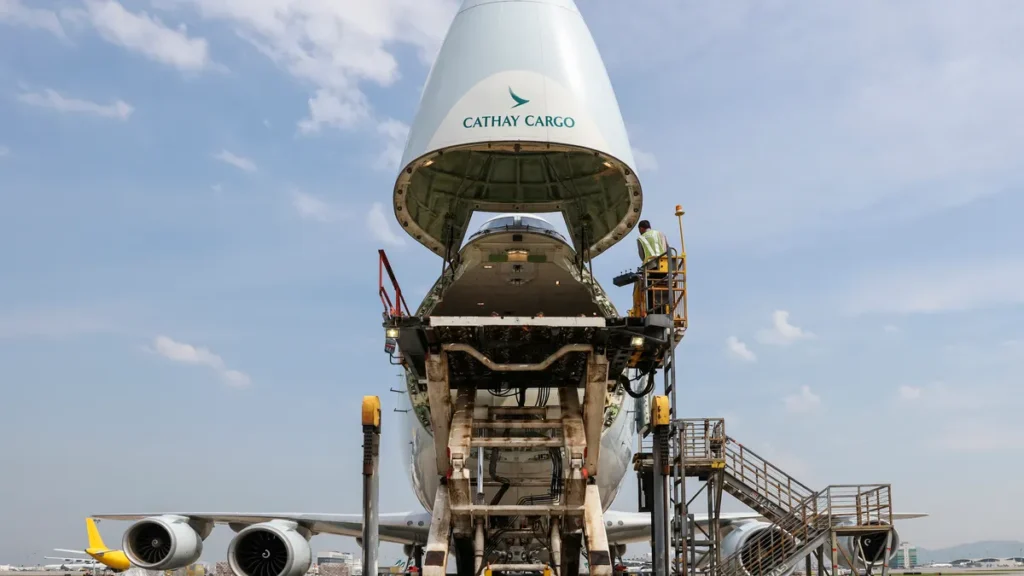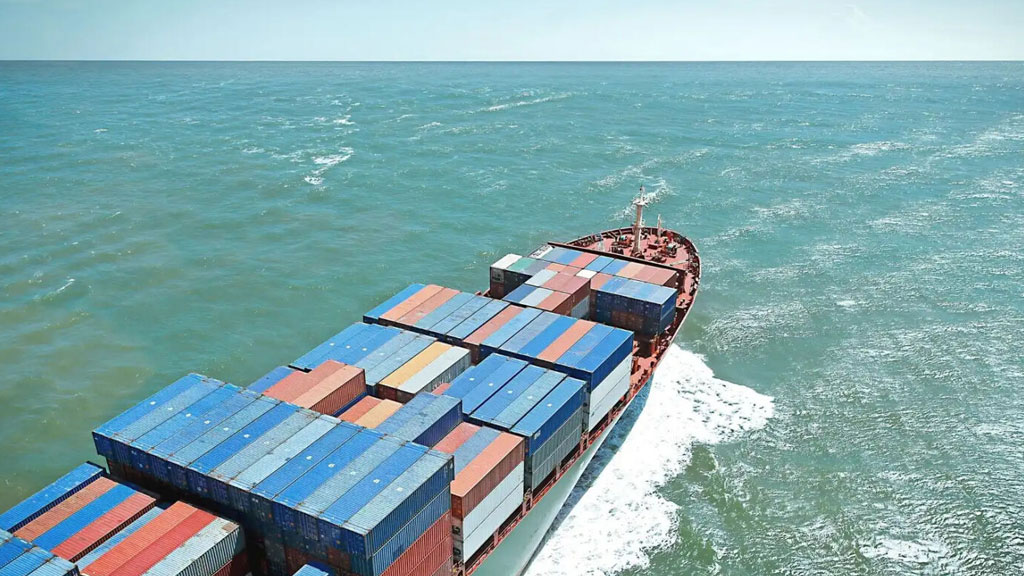- By Della tj
- November 3, 2025
- Rail Freight, Shipping
Rail freight is rapidly becoming the preferred transportation mode for businesses seeking a balance between speed and affordability. With cheap rail freight from Shenzhen to Germany, companies can efficiently move goods across Eurasia while saving on costs compared to air and sea transport. This article explores everything you need to know — from cost breakdowns and transit times to real shipment cases and customs requirements.
Why Choose Cheap Rail Freight from Shenzhen to Germany?
Rail freight offers an ideal solution between the cost of sea freight and the speed of air freight. It’s faster than ocean shipping yet far cheaper than air cargo. For many importers and exporters, this middle ground provides a strategic logistics advantage.
Moreover, rail freight reduces carbon emissions and offers stable delivery schedules that are less affected by weather or port congestion. As a result, many European companies now rely heavily on rail logistics from China to Germany to streamline their supply chain.
| Transport Mode | Average Cost (USD/kg) | Transit Time (Days) | Reliability | Ideal For |
|---|---|---|---|---|
| Air Freight | 6.0 – 8.0 | 5 – 8 | Very High | Urgent Cargo |
| Rail Freight | 1.0 – 2.5 | 15 – 22 | High | General Goods |
| Sea Freight | 0.6 – 1.2 | 35 – 45 | Medium | Bulk Cargo |
How Does the Rail Freight Route from Shenzhen to Germany Work?
The Shenzhen–Germany rail route connects through China’s extensive Belt and Road network. Trains typically travel from Shenzhen to Chengdu or Xi’an, then proceed through Kazakhstan, Russia, Belarus, and Poland, before reaching Hamburg or Duisburg.
Key Transit Corridors
- Southern Route: Shenzhen → Xi’an → Kazakhstan → Russia → Poland → Germany
- Central Route: Shenzhen → Chengdu → Kazakhstan → Belarus → Germany
- Northern Route: Shenzhen → Chongqing → Russia → Poland → Duisburg
Average Transit Time
Depending on customs efficiency and route choice, the journey usually takes 15–22 days, which is three times faster than ocean shipping.
What Are the Costs of Cheap Rail Freight from Shenzhen to Germany?
The cost of rail freight depends on various factors: cargo volume, destination terminal, type of goods, and service mode (FCL or LCL).
| Service Type | Price Range (USD) | Transit Time | Best For |
|---|---|---|---|
| FCL (Full Container Load) | $3,800 – $5,200 per 40ft | 16–20 days | Large shipments |
| LCL (Less than Container Load) | $0.8 – $2.0 per kg | 18–22 days | Small parcels |
| Express Rail Service | +10–15% | 12–15 days | Urgent cargo |
Tip: Choosing consolidation services for smaller shipments can significantly reduce costs while maintaining reliable delivery schedules.

Customs Clearance and Documentation Requirements
Proper customs preparation ensures seamless delivery. Both Chinese and German customs have specific documentation requirements.
| Document Type | Description |
|---|---|
| Commercial Invoice | Detailed list of goods, quantity, and declared value |
| Packing List | Describes packaging structure and content |
| Bill of Lading | Issued by rail freight operator |
| Import License (if required) | Necessary for restricted goods |
| Certificate of Origin | Often required to verify product origin |
| Insurance Certificate | Protects goods during transit |
Customs Tip:
To speed up clearance, always submit digital copies early and use a door-to-door rail logistics provider that handles both export and import procedures.
Real Case Studies: Rail Freight from Shenzhen to Germany
Case 1: Electronics Export (Shenzhen → Hamburg)
Cargo Type: Consumer electronics
Volume: 1×40ft container
Mode: FCL rail freight
Transit Time: 17 days
Cost: $4,200
Result: Saved 55% compared to air freight, delivery aligned with retailer launch schedule.
Case 2: Furniture Shipment (Shenzhen → Duisburg)
Cargo Type: Wooden furniture
Volume: 22 CBM (LCL)
Mode: Consolidated rail freight
Transit Time: 19 days
Cost: $1.6/kg (~$4,000 total)
Result: Balanced speed and cost; avoided port delays in Rotterdam.
Advantages and Disadvantages of Rail Freight Compared to Other Modes
| Aspect | Rail Freight | Sea Freight | Air Freight |
|---|---|---|---|
| Speed | 15–22 days | 35–45 days | 5–8 days |
| Cost | Moderate | Lowest | Highest |
| Reliability | High | Medium | Very High |
| Carbon Emission | 75% less than air | Low | Highest |
| Ideal Cargo | General goods, electronics, textiles | Bulk, heavy goods | Urgent, high-value |
In summary, rail freight offers the perfect middle ground — cost-efficient, reliable, and eco-friendly for time-sensitive shipments.
Need a reliable logistics partner? Share your shipment details and we’ll provide a tailored quotation quickly and accurately.
Factors Influencing Rail Freight Costs
Several variables determine the total freight cost from Shenzhen to Germany:
- Cargo Type and Weight – Electronics and fragile items often need additional handling fees.
- Container Type – Standard, reefer, and special containers differ in pricing.
- Seasonal Demand – Rates may rise during pre-Christmas or Chinese New Year periods.
- Insurance and Surcharges – Optional but recommended for high-value cargo.
- Customs and VAT – Vary based on the product HS code and declared value.
How to Optimize Your Rail Freight Strategy
To achieve the best results with cheap rail freight from Shenzhen to Germany, follow these expert tips:
- Book in advance during high seasons to lock in favorable rates.
- Consolidate shipments to reduce per-unit costs for smaller cargo.
- Choose door-to-door services that manage customs, warehousing, and final delivery.
- Monitor shipment tracking via GPS-enabled platforms for transparency.
- Work with a licensed freight forwarder experienced in Sino-European logistics.
Conclusion
In conclusion, cheap rail freight from Shenzhen to Germany provides a powerful logistics alternative for global traders. It’s cost-efficient, reliable, and environmentally friendly — bridging Asia and Europe faster than ocean shipping and more affordably than air transport. By working with professional freight forwarders, businesses can streamline operations, enhance supply chain visibility, and gain a competitive edge in 2025’s fast-evolving logistics landscape.
Request a Quote
Need a tailored solution for your shipping from China?Let TJ China Freight Forwarder assist you with reliable, cost-effective service.
FAQ:
Q1.How long does rail freight from Shenzhen to Germany take?
Transit time is typically 15–22 days depending on route, customs, and terminal congestion levels.
Q2.What goods are best suited for rail freight?
Electronics, textiles, auto parts, and household goods are ideal for rail shipping between China and Germany.
Q3.Is rail freight cheaper than air freight?
Yes. Rail freight costs about 60–70% less than air shipping while maintaining fast and reliable delivery.
Q4.Can I track my cargo in real time?
Absolutely. Most operators offer GPS-enabled tracking throughout the Shenzhen–Germany rail route.
Q5.What’s the maximum cargo weight for one container?
A standard 40ft container can carry up to 22 tons, depending on the railway line and local restrictions.




